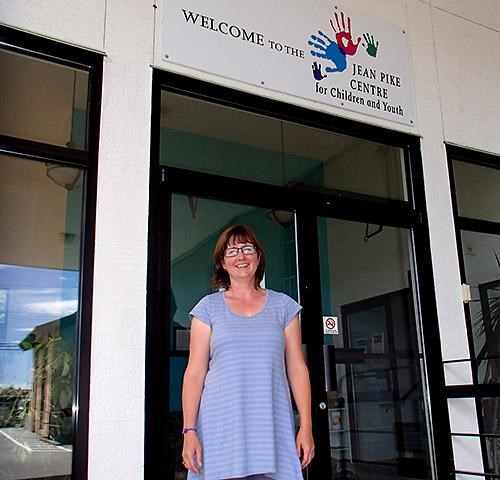Fetal alcohol spectrum disorder (FASD) comes with a stigma—and sometimes that can stand in the way of help. But Laura Cocksedge wants people to know they can find help and they won’t be judged.
Cocksedge is a key worker for the Jean Pike Centre for Children and Youth’s program Understanding FASD Together. She works directly with families that are affected by FASD and in the broader community to promote understanding of the spectrum disorder.
“Sometimes labels are required to give children support,” she said, and while the individual child is identified, “it is the whole family, the parents, grandparents and their communities that need to be engaged.”
While health funding and school resources are often directed at an individual child, the Jean Pike Centre sees situations with a family focus, she said.
“We support the family through parent groups and children groups and groups that help with transitioning into adulthood,” she added.
FASD affects children as they develop. It can cause damage to the brain central and nervous system.
Every brain is different, but common characteristics of people with FASD are problems with short-term memory and the ability to recognize cause and effect. Symptoms, which range in a spectrum, can lead to problems in school and relationships. And as children transition into adulthood the symptoms can also lead to unsafe choices around drinking, drugs and sex. Sometimes the cycle continues and parents of FASD children are living with FASD themselves.
“As the brain grows the damage can be overcome,” said Cocksedge. “The earlier it is diagnosed the better, but it is not an easy diagnosis to get. Specialists are few and there is a long waiting list for testing.”
And then there is the stigma.
To establish a diagnosis of FASD the mother must first admit that she was using a substance while pregnant. These conditions may prevent some people from seeking a diagnosis. Yet, without a diagnosis there is no funding for the kind of support the Jean Pike Centre offers.
Earlier this year the program held several meetings with families. Parents said that they wanted better connections with peers who are going through the same issues. They also wanted to learn more about the condition and how to better navigate the school and social services systems.
Families are struggling as services have been reduced or removed over the past years. Many are living on low income. Even those families who have adopted and fostered for years and have community support can be overwhelmed, she added. As children with FASD reach their teens, their strong emotions, impulsivity and unsafe behaviour can increase, putting the whole family on edge.
Families of children reaching adulthood want peer groups for their children too. “Our system lets kids down at this point,” said Cocksedge. “At age 18 just as people transition into adulthood and integrate into the community, that’s when funding gets more difficult.”
For FASD Awareness Day there will be a presentation by Rita Marshall about supporting women who have FASD and are parenting, and how to support healthy choices during pregnancy. The presentation is open to health professionals, teachers, parents, and anyone affected and interested in the spectrum disorder. Marshall has worked for 18 years in pregnancy outreach programs. Lori Hanson of inclusion Powell River will also present on the Gaps in Service for adults who have FASD.
Both presentations will be held at 1:30 on Tuesday, September 9, 2014 at Community Living Place (6831 Artaban Street). Please RSVP [email protected] by September 5.



